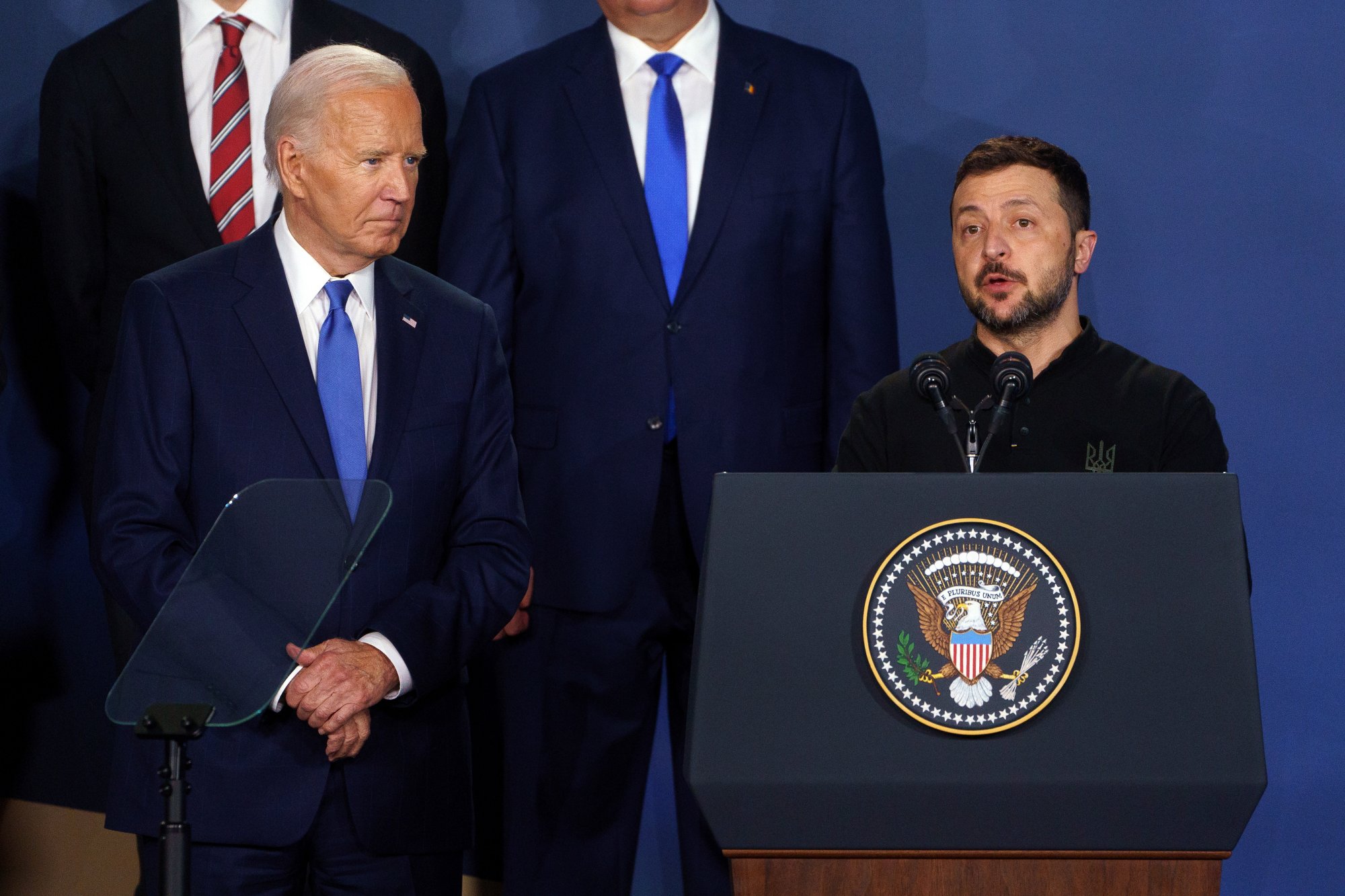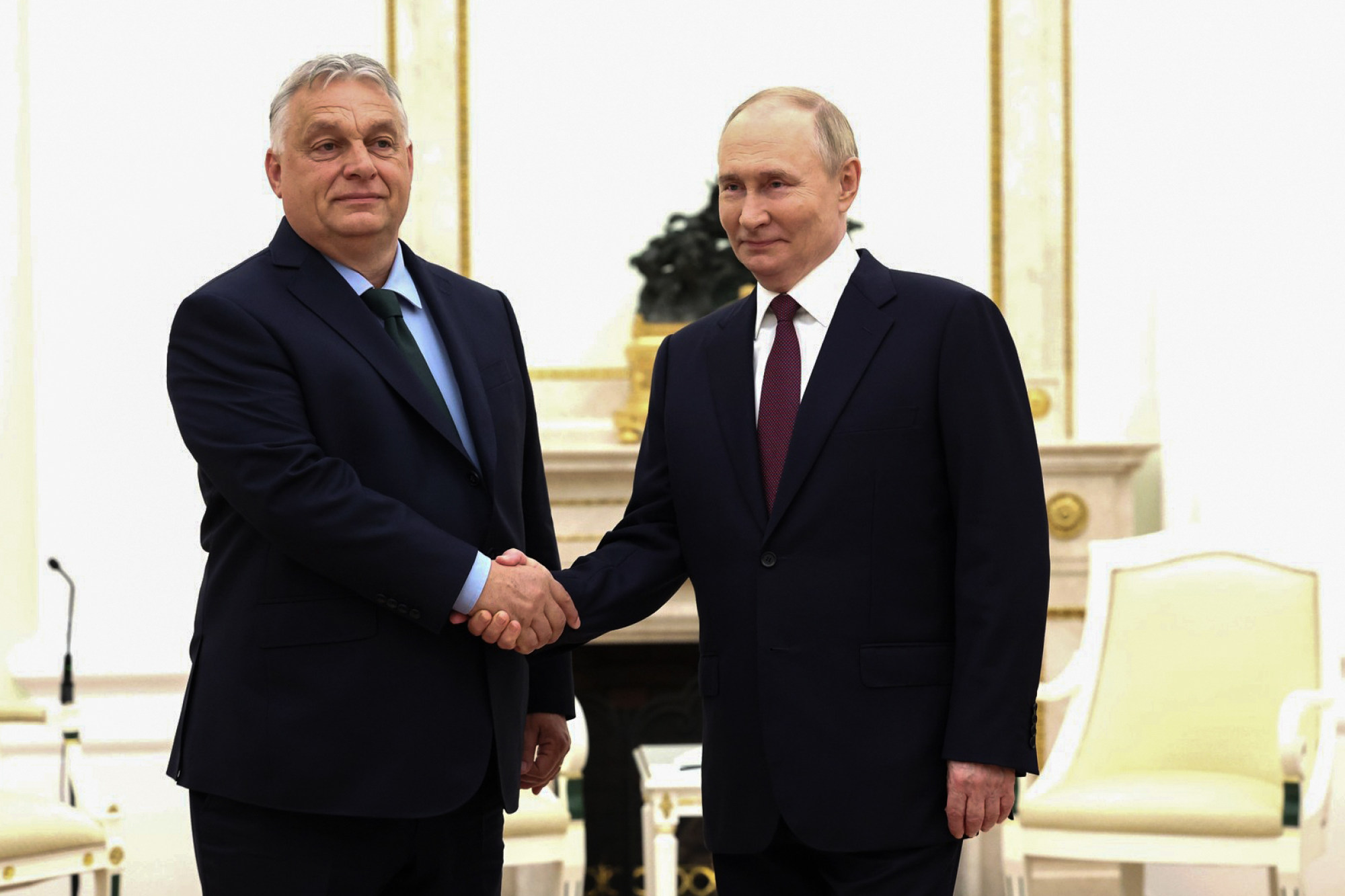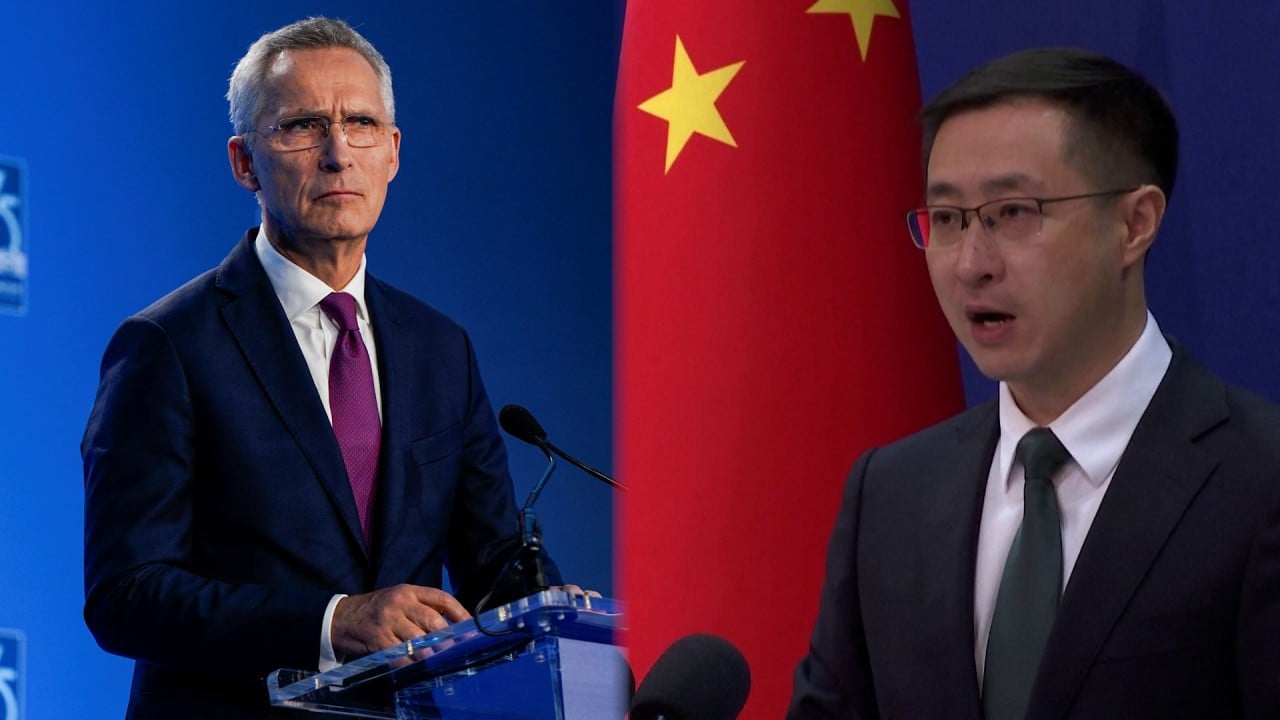“We are pushing China to put pressure on Belarus, but apparently they didn’t understand our request and sent the PLA to Minsk instead,” said a Polish official.
He was referring to the “hybrid warfare” dictator Aleksandr Lukashenko has ordered against its Western neighbour. The documented and ongoing incidents – such as forcing migrants from Iraq into Belarus over the Polish border – have fuelled a crisis between the two countries.
While the exercises with the PLA pose no immediate threat to Poland or any other country, the symbolism is clear: China is bolstering military ties with Europe’s enemies, and is increasingly seen as a security threat across the continent.
Belarus, Russia’s closest ally in its invasion of Ukraine, also maintains close ties with Beijing, having been recently welcomed into the Shanghai Cooperation Organisation.
The images – posted by the Belarusian and Chinese defence ministries – served to sharpen already soaring anxiety about what is being increasingly referred to as a Eurasian axis.
This was strongly articulated at the Nato summit in Washington last week, where the alliance said that Beijing “has become a decisive enabler of Russia’s war against Ukraine through its so-called ‘no limits’ partnership and its large-scale support for Russia’s defence industrial base”.
China has repeatedly said that it has maintained normal trade relations with Russia and has strictly controlled the export of dual-use equipment to Moscow that could be repurposed for the conflict.
The North Atlantic Treaty Organisation is often seen as more hawkish towards China than its institutional neighbour in Brussels, the European Union. Indeed, the Belarusian exercises were regarded more as a warning shot to Nato than desk-jockeys in the commission.
But several senior EU officials said they would not disagree with Nato’s terminology. While China claims to be neutral and “not a party” to the war, it is broadly regarded as being in Russia’s corner.
For more than two years, the EU has lobbied intensely for China to use its influence on Russian leader Vladimir Putin to help end the war.
Now, many conclude that the opposite is happening: Beijing has ignored Europe’s concerns in lieu of turbo-boosting its support for Moscow.
“The Chinese tone on Russia has changed since February 2022,” when Russia invaded Ukraine, said one source who has attended several recent diplomatic meetings with Chinese ministers.
“They were uncomfortable discussing the war, but now they appear more relaxed – less worried. They think Putin is doing better, so they don’t feel so awkward.”
Officials were shocked in March when China’s Eurasian envoy Li Hui came to Brussels after stopping in Moscow and read a list of Russian talking points. The message was that Europe needs to wake up and smell the coffee, because Ukraine would ultimately lose.
Influential voices in Europe are beginning to call for change in how the bloc deals with China, as well as European understanding of Beijing’s intentions.
“For China, it is the right time in history to change the global order. China’s relations with Russia should be understood in its strategic competition against the West,” said Abigael Vasselier, head of foreign relations at the Mercator Institute for China Studies, a German think tank.
Vasselier – who until last year was deputy head of the EU foreign service’s China desk – was one of three authors of a report last month that called for Europe to revamp its relations with Beijing because of its ties with Russia.
“The EU still officially regards China as ‘a partner for cooperation, an economic competitor and a systemic rival’ … this categorisation needs to be completed with a fourth category, one that labels China also as a security threat to Europe,” the report read.
The researchers found that “China is exporting more than US$300 million worth of dual-use products each month that are identified by the EU, US, UK and Japan as ‘high priority’ items for weapons’ production, including in rockets and drones”.
Those sales topped US$600 million in December 2023, per Chinese customs statistics, while more than a third of China’s booming exports to Russia since the invasion were products on the EU’s restricted lists, the research found.

Among official sources, Beijing’s support of Moscow is seen to have spiralled even in the two months since Chinese leader Xi Jinping visited Europe.
At the time, French President Emmanuel Macron thanked Xi for pledging to halt the shipment of dual-use goods. But, EU officials said, there has been no observable change in the trend in Chinese custom statistics.
Both Macron and German Chancellor Olaf Scholz, after each spent time with Xi, were confident Beijing would send a delegation to last month’s Kyiv-backed peace summit in Geneva, two senior sources said.
They were, as a result, reluctant to add Chinese firms to an EU blacklist of companies funnelling sanctioned European goods to Moscow.
Instead, Ukrainian President Volodymyr Zelensky wound up accusing China of “sabotaging” the event by discouraging Global South countries from attending.

EU sources said that in the run-up to the summit, the Chinese foreign ministry was phoning embassies in Beijing to promote an alternative Sino-Brazilian proposal, which would see Russia’s security claims represented, Moscow given a seat at the table and “fair discussion of all peace plans”.
EU-China trade tensions are a separate matter, but the anger over Beijing’s ties to Moscow have emboldened the European Commission to consider more aggressive actions to tackling Chinese imbalances, sources said. As a result, a deluge of anti-subsidy probes by the EU have led the sides to the brink of a trade war.
The dynamic was further complicated this week, when Hungarian Prime Minister Viktor Orban, currently leading the rotating EU presidency, embarked on a “peace mission” that included stops in Kyiv, Moscow, Beijing and – after stopping in Washington for the Nato summit – the Florida resort Mar-a-Lago, to meet with former US president Donald Trump.



